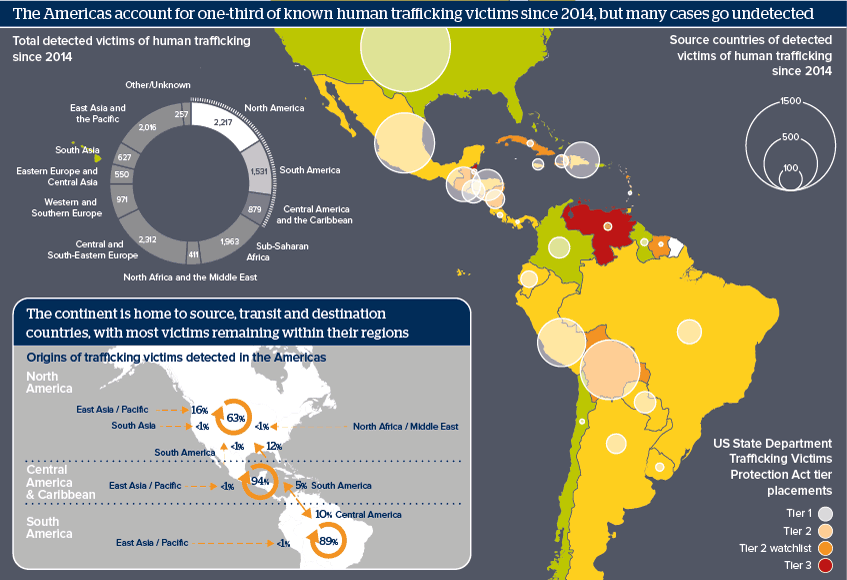US stance may exacerbate human trafficking in Americas
Scattered state efforts to tackle human trafficking will have limited effect amid widespread corruption and insecurity
Source: UNODC; US Department of State
Outlook
Human trafficking is prevalent continent-wide, with girls, women, indigenous people and undocumented migrants particularly at risk. Generally, victims are pushed into the sex trade or used for forced labour.
Most countries fall short of US standards for combatting trafficking but the issue is steeped in broader security challenges. Violence, forced displacements and undocumented migration will exacerbate exploitation, while weak institutions and corrupt security forces facilitate it.
US efforts to tighten border security and increase deportations will leave more people vulnerable to traffickers. A lack of trust in state authorities will hinder information gathering, while worsening US regional relations could impede intelligence-sharing and security cooperation.
Impacts
- Low pay and large-scale, often rushed, recruitment drives for security services will increase bribery risks, facilitating trafficking.
- The reinforcement of barriers on the US-Mexico border will make smuggling and trafficking of all kinds more lucrative.
- Political turmoil may exacerbate human trafficking in Venezuela, already blacklisted by Washington for its poor record.
- Haitian authorities may struggle to maintain recent anti-trafficking successes in the face of the country’s extreme social challenges.
